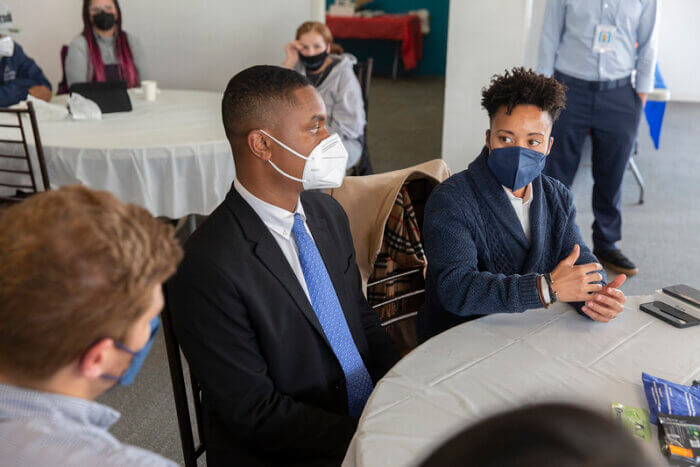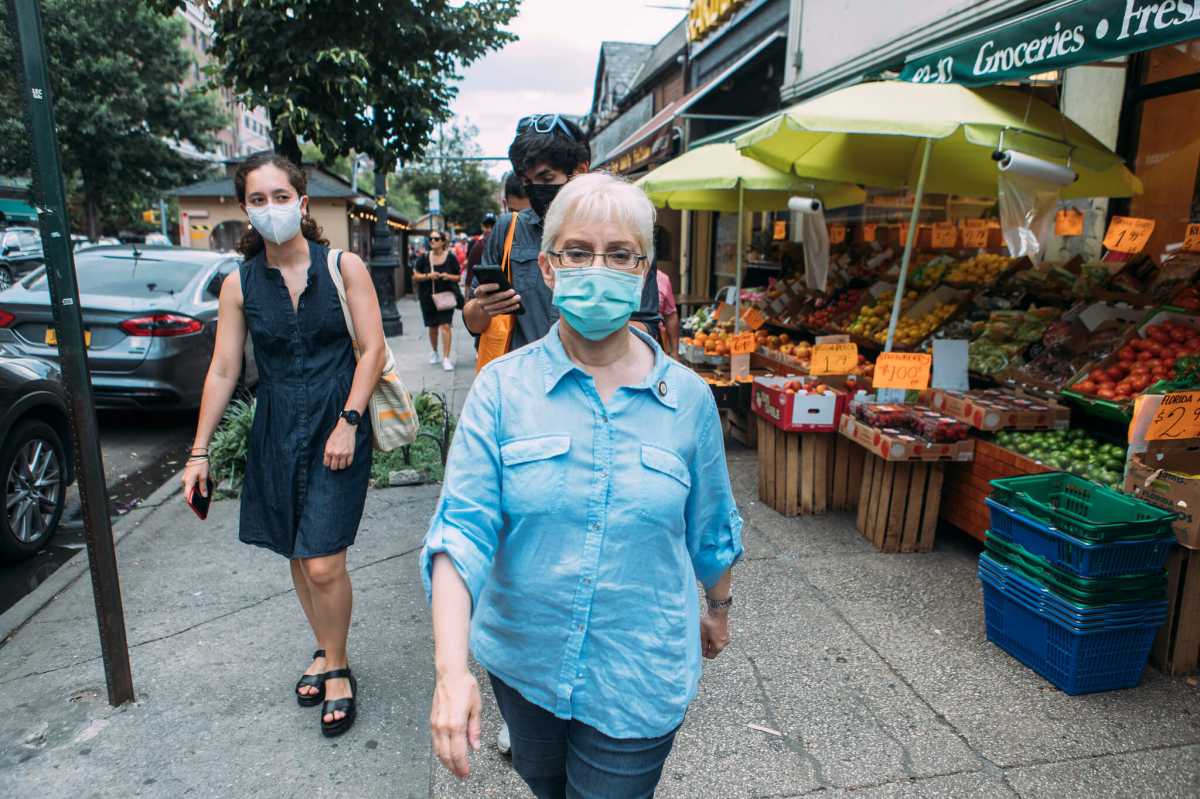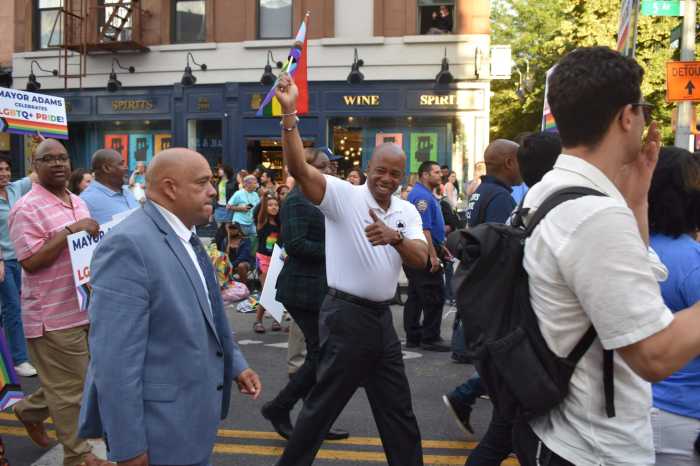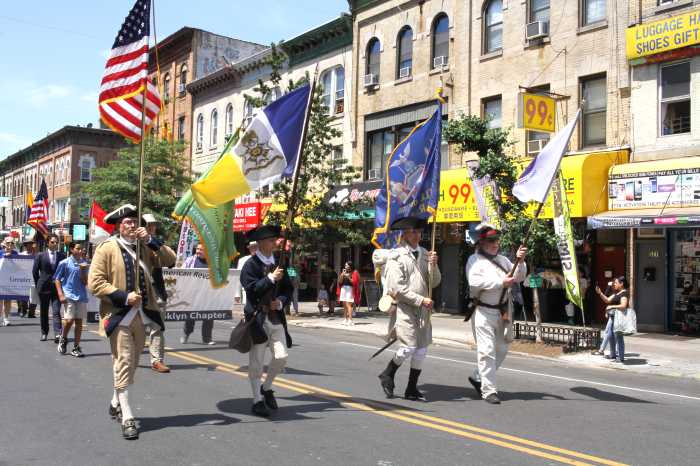Six out New York City lawmakers vying for another term in office easily disposed of the little competition they faced in their re-election bids on Nov. 7, concluding an unusual election cycle involving two-year terms instead of the usual four-year stints.
Tiffany Cabán and Lynn Schulman of Queens, Crystal Hudson and Chi Ossé of Brooklyn, David Carr of Staten Island, and Erik Bottcher of Manhattan — all first-term lawmakers in the LGBTQIA+ Caucus — emerged victorious on election night, according to unofficial election results.
At the same time, however, another member of the City Council’s LGBTQIA+ Caucus, Kristin Richardson Jordan, did not run for re-election in Harlem’s District 9, which includes Central Harlem, Morningside Heights, Upper West Side, and East Harlem. Richardson Jordan’s successor will be Yusef Salaam, who ran unopposed in the general election. Salaam was among the five individuals exonerated in the 1989 murder of a Central Park jogger in a case described as the “Central Park Five.”
The LGBTQIA+ Caucus will drop from seven members to six after Richardson Jordan leaves office.
Other out lawmakers, however, enjoyed lopsided victories across the board during a re-election season that deviated from the typical structure of four-year terms. Council districts are remade once every 10 years in the redistricting process, which ultimately transforms four-year terms into two-year terms for two cycles. Four-year terms will return in the next City Council election, slated for 2025.
In Queens, Schulman pulled in nearly 8,000 votes and two-thirds of the total vote share in a lopsided win over Republican challenger Danniel S. Maio in District 29, which encompasses Rego Park, Forest Hills, Kew Gardens, and Richmond Hill. Sukhi Singh, who ran on the Common Sense party line, registered just 4% in that race. In 2021, Schulman had about 61% of the vote in her first general election victory.
“When I launched my re-election campaign, it was with the thought that we are not yet done with our fight,” Schulman said in a written statement. “As we continue to improve our neighborhoods, I am striving to deliver a public health agenda to make our city the healthiest in the nation, provide better services for older adults, and ensure our kids have a great education. I am proud of the broad coalition we have built with neighbors, community leaders, organized labor, and colleagues in government. Together, we will get closer to creating the Queens of our dreams.”
Also in Queens, LGBTQIA+ Caucus Co-Chair Tiffany Cabán had no difficulty staving off her Republican opponent, Kelly M. Klingman, in Astoria, Rikers Island, East Elmhurst, Jackson Heights, and Woodside. Cabán has won back-to-back City Council races in District 22 since her narrow, nail-biting defeat in the Queens district attorney race in 2019. Cabán grabbed a greater share of the vote in her re-election bid than in the 2021 general election for City Council when she earned 63% of the vote.
Other races saw even bigger blowouts, including in Bottcher’s District 3 on the west side of Manhattan. Out of about 15,300 votes tallied in that district, about 13,700 went to Bottcher, while Republican Robert P. Bobrick had 1,595 votes, or 10.3%.
In an election night post on X, Bottcher thanked voters for sticking with him in his re-election bid.
“Serving as your Council Member is the honor and privilege of my lifetime,” Bottcher said. “We are facing unprecedented challenges as a city, but I know we will prevail, because when we come together as New Yorkers, there is nothing we can’t accomplish.”
In Brooklyn, out Councilmembers Chi Ossé and Crystal Hudson — both unopposed — breezed past the general election with ease. Hudson, whose District 35 includes Fort Greene, Clinton Hill, Crown Heights, Prospect Heights, and Bed-Stuy, brought in nearly 14,000 votes, while Ossé had about 9,400 votes in District 36, which covers Bed-Stuy Northern Crown Heights.
“I just want my trolls and haters to know that out of every NYC Council race that took place last night, I won the highest percentage of the vote out of all of the 51 districts (98.74%),” Ossé wrote on X. “I will never waver on my values and beliefs. Thank you to my constituents. I love y’all.”

Hudson, a a co-chair of the LGBTQIA+ Caucus, posted an election day photo at her polling site alongside her family.
“Voting with our little one hit differently today,” Hudson wrote. “I do this work for those coming behind us, those who have forged the paths before us, and for those of us who still feel left out of a system never built for us. It’s a true privilege to serve & I’m honored to be on the ballot!”
Carr — the only Republican member of the LGBTQIA+ Caucus — also ran unopposed but still hauled in 10,000 votes in Staten Island’s District 50, which is located in the middle of the island. Two years ago, Carr squared off against Democrat Sal Albanese, who grabbed 33% at the time.
Members of the City Council with anti-LGBTQ records also managed to win re-election races around the city. Councilmember Vickie Paladino, who was removed from the Mental Health, Disabilities, and Addiction Committee after voicing anti-LGBTQ remarks and attacking drag story hour, also won another term in Queens’ District 19, which consists of Auburndale, Bay Terrace, Bayside, Beechhurst, College Point, Douglaston, Flushing, Little Neck, Malba, and Whitestone.
Among other winners were Brooklyn Councilmember Inna Vernikov, who has expressed her opposition to allowing transgender individuals to play sports in accordance with their gender identity, and Staten Island Councilmember Joe Borelli, who has voted against multiple LGBTQ rights bills dating back to his time in the State Assembly.
“BIOLOGICAL MEN should NOT be competing in sports with BIOLOGICAL WOMEN,” Vernikov said in a post on X in April. “This is an infringement on women’s rights, including their right to privacy when they’re changing in their locker room!”
Vernikov finished with 67% of the vote, while her opponent, Democrat Amber Adler, had 24%. Borelli ran unopposed.

































